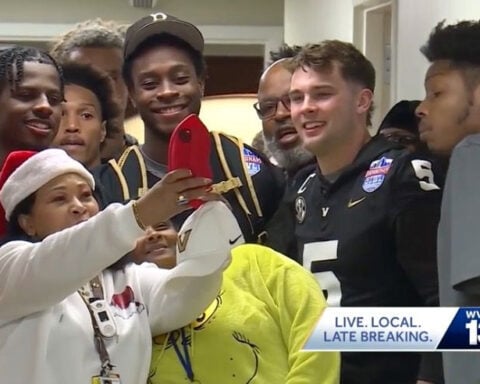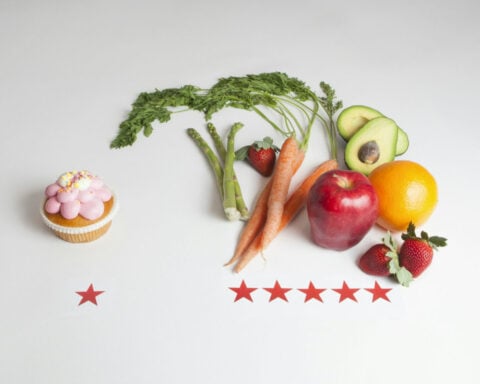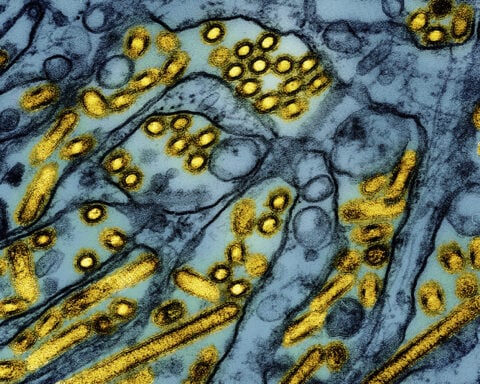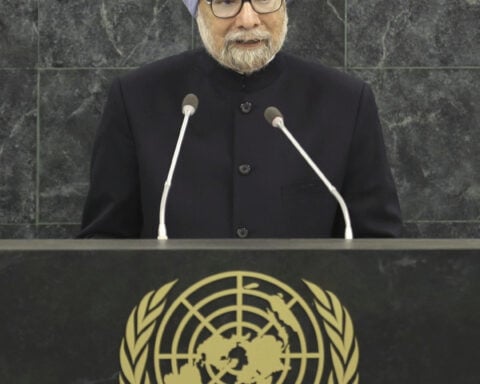Thanks to Gen Z, conversations about mental health are finally coming out of the shadows through a new vocabulary permeating pop culture. Quirky terms like "stressy and depressed" and "menty b" are destigmatizing struggles previous generations brushed under the rug. But experts now debate if lighthearted lingo risks trivializing real illness or enabling avoidance of proper care.
Trendy phrases help alleviate stigma, according to therapist Michael Dzwil. "Saying 'I had a menty b' takes control of the narrative," he said of the slang meaning mental breakdown. Social media spaces allow young people to bond over shared troubles with peers facing similar issues.
However, clinical psychologist Dr. Nicholas Westers argues that flippant terminology often distracts from seeking actual treatment. He warns those frequently employing this vocabulary tend to self-diagnose instead of consulting professionals.
Furthermore, indirect language makes distress sound more trivial than it truly is. "'I'm having a menty b' reflects very little control over the situation," Westers noted.
So, while silly slang represents progress in discussing mental illness more openly, experts emphasize aligning improved understanding with evidence-based modalities. Removing shame must intersect with scientific solutions.
**Why Humor Helps**
Creative keywords empower individuals to acknowledge their struggles by making light of heavy issues. This is abundantly clear across social media, where "menty b" attracts almost 70 million TikTok views. Dark comedy brings intimacy to otherwise isolating instances of pain.
"It's like, 'I'm not the only person going through this,'" Erika Nelson said of candid reactions and communal bonds enabled online. Public posts remind viewers they aren't alone.
According to Dzwil, comedic lingo also helps people take ownership of their troubles. "It allows you to take control of the narrative," he stated.
This loosening of longstanding stigmas may additionally motivate some to pursue professional consultations finally. However, Westers cautions that emotionally detached dialect can also enable avoidance of addressing underlying challenges.
**Why Support Needs Substance**
Laughter alone rarely resolves clinical conditions. So, creative keywords should aim to reduce barriers to care access rather than replace treatment strategies.
"The only vacation I'm open to is a grippy sock one," a recent viral tweet joked regarding psychiatric hospitalization stays. But while the quip builds community, more is needed to constitute proper intervention for those seriously struggling.
Trivial terminology also threatens to invalidate those truly experiencing disabling disorders. "It minimizes the experience of people who struggle," Westers warns.
Furthermore, claiming conditions like depression or OCD absent professional diagnosis often misapplies important medical distinctions. Armchair analysis frequently frames normal emotions as pathological.
Nevertheless, the prevailing destigmatized dialogue was once dangerously deficient, shrouding such topics in secrecy. Perhaps the solution rests in directing newly vocal voices toward qualified counsel.
**Why Peer Support Matters**
The pivot from buried shame to transparent processing marks immense positive momentum considering past stigma—witty words foster spaces where folks facing similar situations feel less alone.
"A lot of my jokes center around mental illness or LGBTQ stuff specifically," one person noted of social media bonds uniting niche groups. Shared experiences build solidarity, even if only temporary.
Finding community can be incredibly cathartic. But when publicly pronounced struggles replace privately seeking solutions, consequences arise.
"Sometimes I don't even know friends are struggling because they mask it online," Natalie Williams said, despite frequent "grippy sock vacation" discussions. Though social media sparking initial conversations remains valuable, experts assert solutions necessitate clinical consultations.
**Changing Language Reflects Changing Attitudes**
Changing language online reflects differences between generations regarding being open about their feelings. For example, younger generations tend to show their mental unhappiness rather than hiding it, which was the norm in the past.
Gen Z, in particular, born into digital interconnectivity, sees social vulnerability differently than guarded generations prior. Social media rewards transparency, teaching kids that airing anxieties earns likes and empathy.
Before long, tacit messaging switched from "keep it to yourself" to "let it out" when facing mental health strains. This profound shift enabled once marginalized communities to find support systems after decades spent silenced by stigma.
Still, questionable boundaries surface given privacy's wholesale erosion in oversharing's wake. Do trauma play-by-plays now devoid of context help or harm? And at what point does too much insight invalidate progress?
**Seeking Nuance Moving Forward**
Creative lingo kickstarted crucial conversations, compelling societal strides and decreasing stigma. However, sustainable solutions require professional pathways and responsibility.
Wit can't resolve clinical cases alone; treatment necessitates accurate diagnoses and responsive modalities. Trite terminology should direct folks toward evidence-based options rather than stall substantive progress.
Likewise, framing advice accurately given individual contexts proves prudent. Pithy phrases make struggles digestible yet downplay their gravity when inappropriately applied. Dark comedy comfort zones serve some scenarios better than others, given mental health's intrinsic spectrum.
Balanced guidelines affirm while advising, refusing to catastrophize or trivialize voiced concerns. They meet people where they are with compassion and then filter folks toward proper systems built to help them heal.
Humor opens the door to support while professional practitioners provide keys to unlocking lasting change. Social media undeniably builds bridges; qualified counsel must cross them successfully. Slang starts conversations, but science steps in where semantics leaves off.

 Cats can get sick with bird flu. Here's how to protect them
Cats can get sick with bird flu. Here's how to protect them
 An uneasy calm settles over Syrian city of Homs after outbreak of sectarian violence
An uneasy calm settles over Syrian city of Homs after outbreak of sectarian violence
 LL Bean agrees to injunction to end Skechers shoe lawsuit
LL Bean agrees to injunction to end Skechers shoe lawsuit
 WHO chief says he was at Yemen airport which Israeli strikes targeted
WHO chief says he was at Yemen airport which Israeli strikes targeted
 Organizers say two sailors have died in Sydney to Hobart yacht race amid wild weather conditions
Organizers say two sailors have died in Sydney to Hobart yacht race amid wild weather conditions
 Column-Why US Congress restored Social Security benefits for public-sector retirees: Mark Miller
Column-Why US Congress restored Social Security benefits for public-sector retirees: Mark Miller
 Peru declares environmental emergency after oil spill
Peru declares environmental emergency after oil spill
 Holiday travelers are facing flight cancellations as severe storms roll into the South
Holiday travelers are facing flight cancellations as severe storms roll into the South
 Miami Hurricanes men’s head basketball coach Jim Larrañaga steps down, cites NIL: ‘I’m exhausted’
Miami Hurricanes men’s head basketball coach Jim Larrañaga steps down, cites NIL: ‘I’m exhausted’








